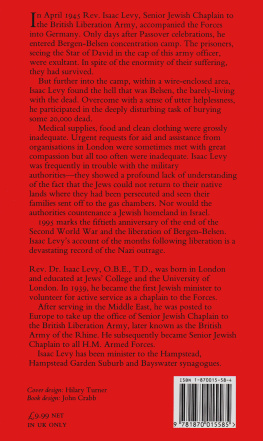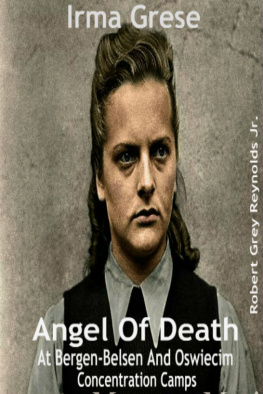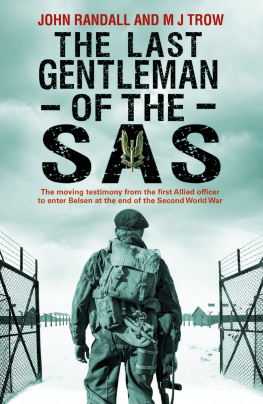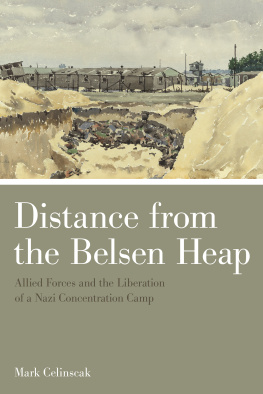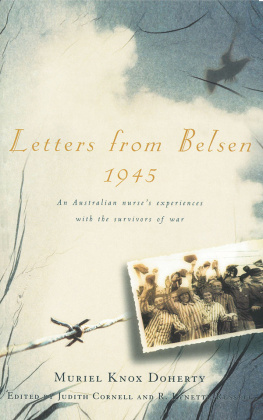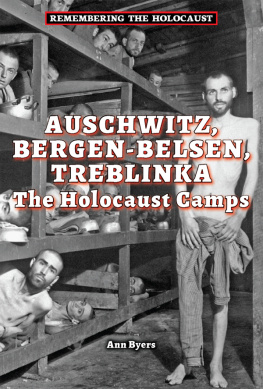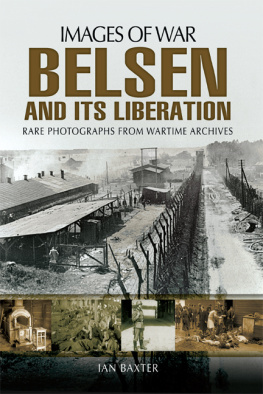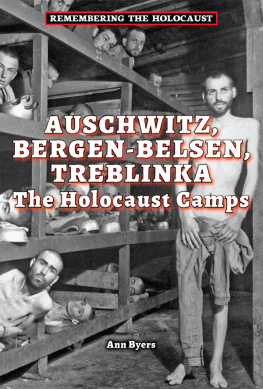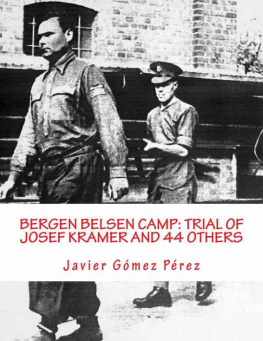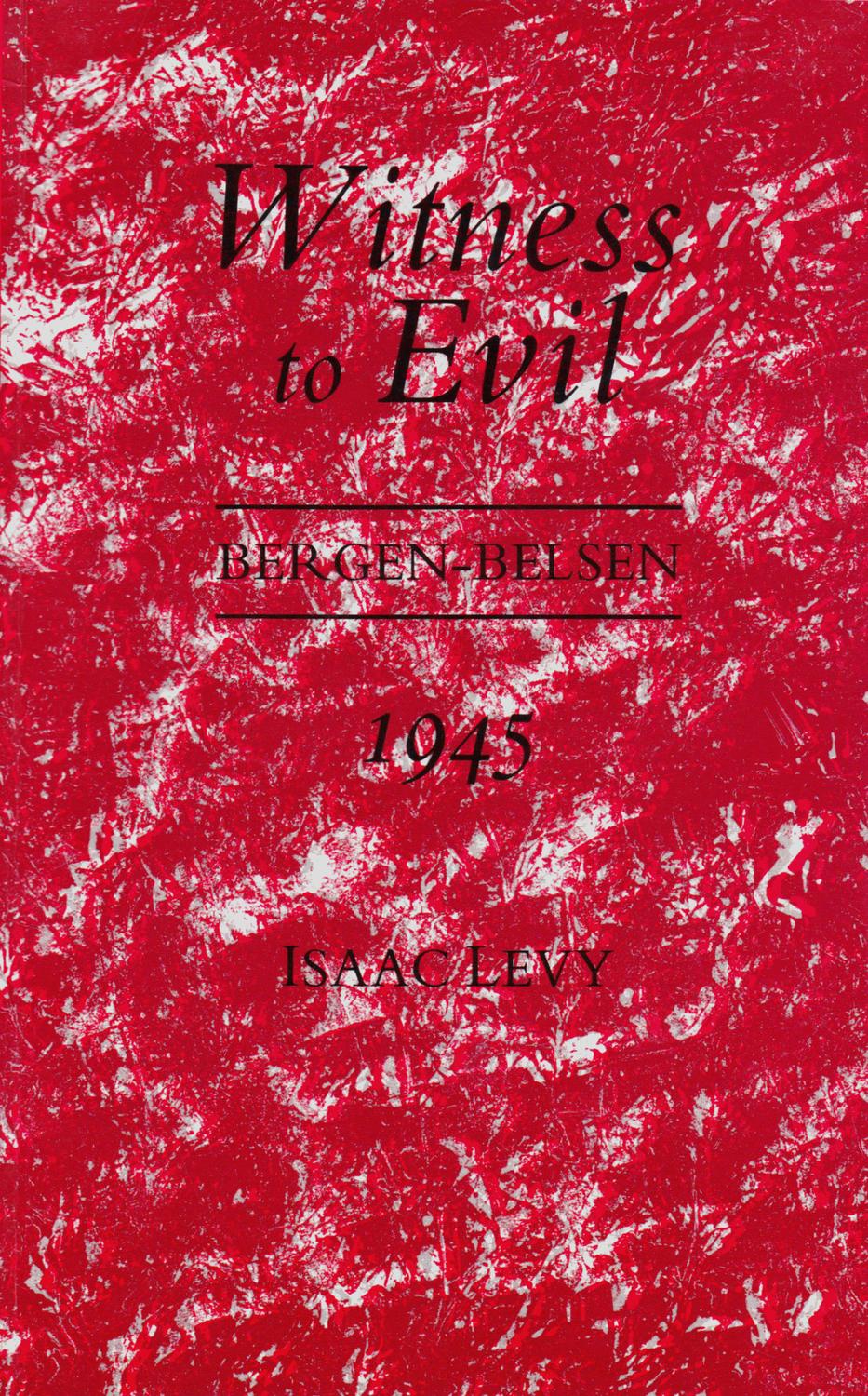v
M y personal memoir of the period 19414 appeared in 1978 under the title NowICanTell:MiddleEastMemories. Since then I have been urged by friends and associates who read that book to write a sequel covering the years 19445 when I served as Senior Jewish Chaplain to the British Liberation Army and experienced the trauma following the liberation of the Belsen concentration camp and its concomitant political, social and religious complications.
I persistently refused to do so not because of indolence but from a sense of impotence to offer a purely factual presentation unaffected by the disturbing emotions which memories evoke. This combined with a reluctance to record my involvement in frequent controversy with the authorities.
When I participated in the historic First International Conference of Children of Holocaust Survivors held in New York in May 1984, and delivered an address on Belsen in the presence of more than 1700 young people, memories of those horrendous years were painfully revived. This occasion offered me the opportunity for a reunion with a number of Belsen survivors with whom I had worked closely. They too tried to persuade me to record my experiences saying that I was duty bound to do so. I still felt unable to comply with their wishes.
What then prompted me, after the passage of so many years, vi to put pen to paper? Strange as it may seem, the catalyst was Menachem, the son of Yossel and Hadassah Rosensaft. Menachem was born in Belsen. He has written the most moving poetry, and is now a successful international lawyer. He was the founder and first chairman of the International Network of Children of Jewish Holocaust Survivors. On a visit to London, he came to see me and his presence revived memories of his parents who had been responsible for the creation of the Central Jewish Committee in Belsen, and their struggles to obtain due consideration for the special needs of Jewish inmates of the camps.
He presented cogent arguments that my testimony as an eyewitness was essential because, with the passing years, there would be a paucity of reliable witnesses to that painful chapter of Jewish history. I therefore agreed. I proceeded to read the hundreds of letters I had written to my wife who so diligently preserved them and to whom I poured out all my bitter frustrations, and without disclosing military secrets wrote a daily account of my painful experiences. I re-examined documents and memoranda, now yellowing with age. I reread correspondence which passed between me and various organisations which were supposed to help us deal with the problems which seemed to accumulate almost daily. All this previously unpublished material helped me to revive faded memories and to relive the experiences of that distant past.

The notorious Belsen concentration camp was liberated by the British Army on 15 April 1945 and the citizens of the United Kingdom were made fully aware for the first time that such a death factory actually existed. Until then the only camps which received any mention were Dachau and Buchenwald and vague rumours circulated about a place called Auschwitz. It vii took all too long for the full implications of Hitlers Final Solution to make an impact.
There was a strange and inexplicable reluctance to admit to such horrors and callous inhumanity. Jewish refugees from Germany and central Europe had been permitted to arrive in England in the early 1930s on condition that they were supported by friends or Jewish organisations and would not become a burden on the state. At the outbreak of war, many hundreds of them enlisted in the army albeit at first only to serve in the Pioneer Corps as members of a non-combatant labour force. These men had a tale to tell about the treatment meted out to them at the hands of the Nazis, but reports of atrocities were suppressed prior to Britains declaration of war.
Only when it suited the war propaganda machine were efforts made to circulate the truth. The full implications of what concentration camps were designed to achieve were all too vaguely described or understood. Bad news travels fast but not when it is inadequately expressed, or when for political reasons it is hushed up. Hitlers rise to power was deemed Germanys internal affair. His treatment of Jews may have been verbally condemned by the passing of pious resolutions, but evinced no positive action on the part of the free nations of the West. Kristallnacht, 910 November 1938, was a clear indication of what was in store for continental Jewry, but was not seen as a pointer to the horrors yet to come. Appeasement, the dominant theme at the time, could only be interpreted by some of us as an apathetic attitude to the fate of European Jewry.
The fact that Oswald Mosley and his British Union of Fascists were permitted to parade through the streets of London in their uniforms, glorying in their Hitler salutes, was profoundly disturbing. Those of us who were active in the anti-Fascist movement used every opportunity to denounce Mosley and his henchmen, proclaiming that they and their doctrine were not just anti-Semitic but that they also spelt a threat to democracy and should therefore be denied the freedom of viii speech which they enjoyed. We were equally disturbed by the apparent indifference displayed by the Board of Deputies, the official representative organisation of British Jewry, to the Fascist threat in that they were reluctant to adopt an openly anti-Fascist stance, preferring to restrict themselves to a defensive attitude to any anti-Jewish statement emanating from the B.U.F.
The outbreak of war changed all this. The menace of Hitlerism was acknowledged, its satellite Fascists were interned for the duration of the war and Britain at last resolved to adopt the necessary measures to combat the threat which Germanys advancing armies presented to the peace of the world.
The dire effects of Hitlers wartime occupation of Europe became known to those of us who served with the British Liberation Army. We can testify from personal experience and from the impact which everything we witnessed had on us.

